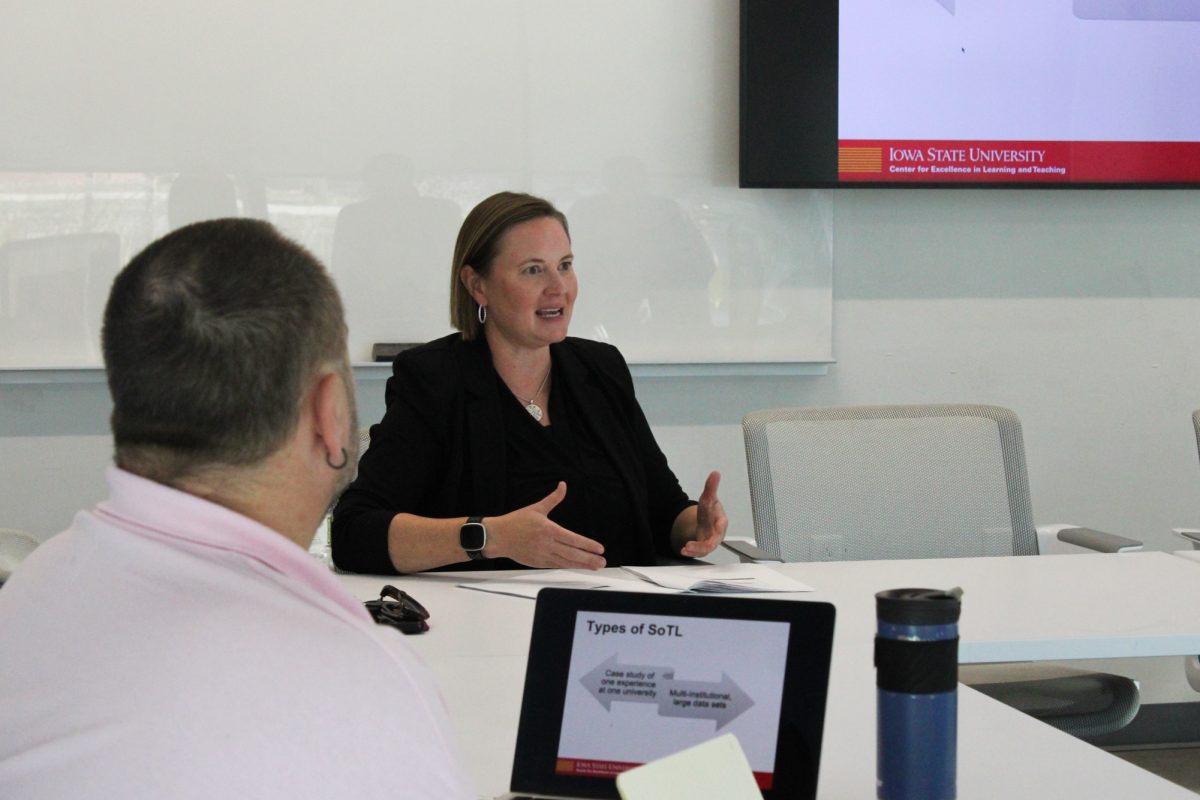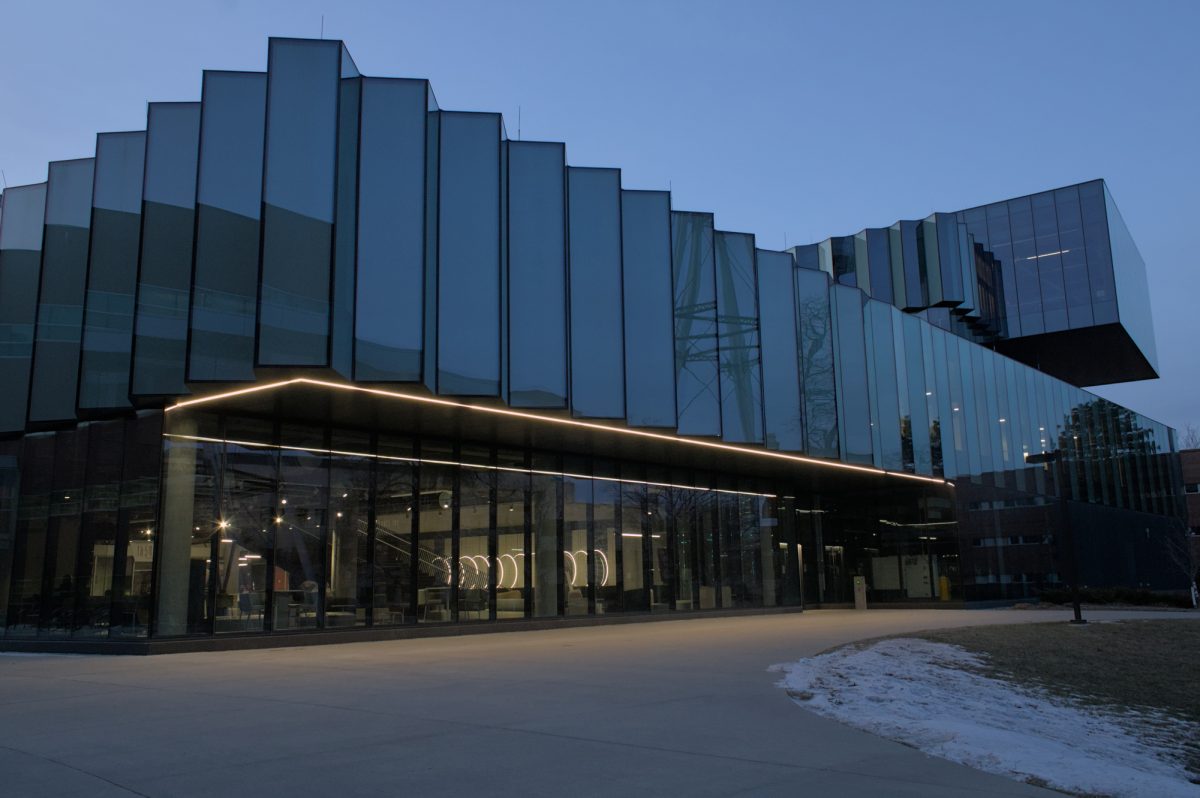The Scholarship of Teaching and Learning (SoTL) is a program that supports Iowa State faculty members in research that affects the teaching and learning of students.
During the SoTL presentation on Tuesday, Sara Marcketti, assistant provost, Center for Excellence in Learning and Teaching (CELT) executive director and Morrill Professor of apparel, events and hospitality management, explained that the first step of the SoTL process is to come up with a research question.
“When someone called me and said, ‘I’ve done this study before, I want to do it at Iowa State, here’s the scales we’re going to use, here’s the method,'” Marcketti said, “[it] was on a silver [platter], almost.”
Once faculty have come up with their research question, the next step is to begin data collection. Paul Hengesteg, the scholarship, assessment and programs coordinator for CELT, explained that the process isn’t always linear.
“Sometimes you don’t realize you have a question or a concern until you’re in the middle of that data collection,” Hengesteg said. “And you don’t know until it shows up in front of you, and then you go, ‘Oh, this is a thing I need to explore.’”
According to Marcketti’s presentation, the faculty members are to gather data and information to support their research. The data can be quantitative or qualitative, and often, the two types of data are on a continuum.
“I think why people feel uncomfortable is there’s often this continuum of qualitative and quantitative,” Marcketti said. “And I know if you’re a qualitative person, you’re terrified of the other.”
Data varies from study to study, but some examples of primary data could be students’ test scores, participation in Greek associations or GPAs. Secondary data could be represented by a student’s enjoyment of a project or if it expanded their thinking.
An advantage of SoTL studies is their direct impact on students at Iowa State.
“I noticed from the start of the semester to the end of the semester, the growth of the students was amazing,” Marcketti said.
To figure out what caused this, she had students participate in pre and post-course tests and turn in weekly journal entries.
“We pulled in institutional research, we looked at the pre and post-tests,” Marcketti said. “We analyzed the qualitative journal comments to be able to show how the leadership skills and attitudes of the students changed.”
Lastly, information is gathered, turned into a report and published in a journal.
For more information on the SoTL program, click here.














